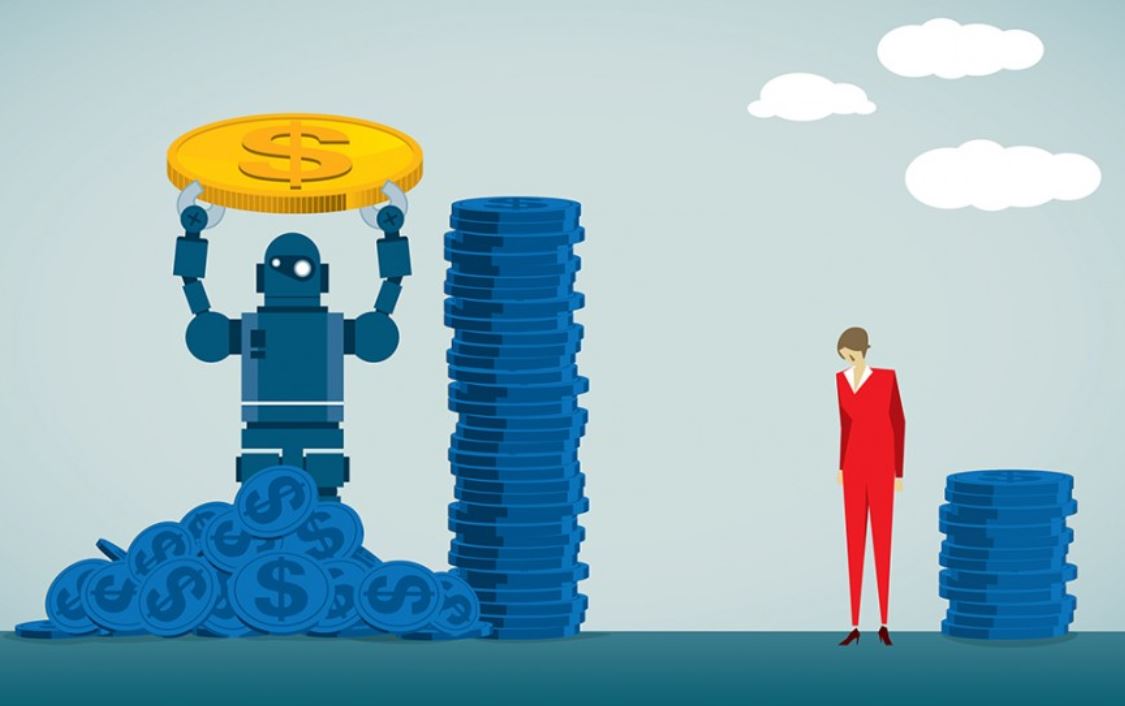
Faster robots tend to demoralize co-workers, a team of researchers has found. When robots perform better than humans in contests for cash prizes, we consider ourselves less competent. We subsequently don’t try so hard and tend to dislike the robots. Put simply; smart robots can undermine worker morale.
This is what researchers from Cornell University and the Hebrew University of Jerusalem explained at the ACM/IEEE International Conference on Human-Robot Interaction.
In their study, ‘Monetary-Incentive Competition Between Humans and Robots: Experimental Results,’ roboticists and behavioral economists examined how a robot’s performance affected human behavior. Specifically, they wanted to find out how humans reacted when they competed against robots.
The study authors were Alap Kshirsagar, Bnaya Dreyfuss, Guy Ishai, Ori Heffetz, and Guy Hoffman.
Their findings supported behavioral economists’ theories regarding loss aversion. Their theories predict that humans try less hard when their competitors are outperforming them.
The researchers also offered suggestions on how workplaces might optimize teams in which humans and robots work together.
We need to consider worker morale
Guy Hoffman, an Assistant Professor at Cornell’s Sibley School of Mechanical and Aerospace Engineering, said:
“Humans and machines already share many workplaces, sometimes working on similar or even identical tasks. Think about a cashier working side-by-side with an automatic check-out machine, or someone operating a forklift in a warehouse which also employs delivery robots driving right next to them.”
“While it may be tempting to design such robots for optimal productivity, engineers and managers need to take into consideration how the robots’ performance may affect the human workers’ effort and attitudes toward the robot and even toward themselves. Our research is the first that specifically sheds light on these effects.”
Robots vs. humans – an experiment
In this latest study, robots and humans competed in a tedious task. They had to count how many times the letter ‘G’ appeared in a string of characters. They then had to place a block in the bin that corresponded to the number of occurrences.
A lottery determined a person’s chance of winning each round. The lottery was based on the difference between the robot’s and person’s scores. Humans had a fifty percent chance of winning the prize if their and the robots’ scores were identical. That probability fell or rose depending on whether the human or robot was doing better.
As robots improved worker morale declined
The screen continuously indicated the participants’ chances of winning so that they were aware of the stakes.
After each round, the human competitors completed a questionnaire which rated the robot’s competence. They also rated their own competence as well as the robots’ likability.
The research team found that as robots performed better, participants rated their (robots’) competence higher. They also rated their own competence lower and the robots’ likability lower.
What is a robot?
A robot is a machine, typically one that engineers can program, that can carry out a series of actions. In most cases, it can carry out these actions automatically.
Initially, robots just had an external device that controlled them. Today, however, many have internal devices.
Some robots are humanoid, i.e., they have two arms, two legs, a torso, and a head, just like we do. Most of them, however, do not look like humans.
For workplace functions, engineers design them to perform specific tasks with no regard to their appearance.
Thanks to artificial intelligence, robots are becoming increasingly sophisticated. Some of them have the ability to learn from experience without human intervention. We call this capability machine learning. In other words, the robot or device can improve on its own, without our help.
